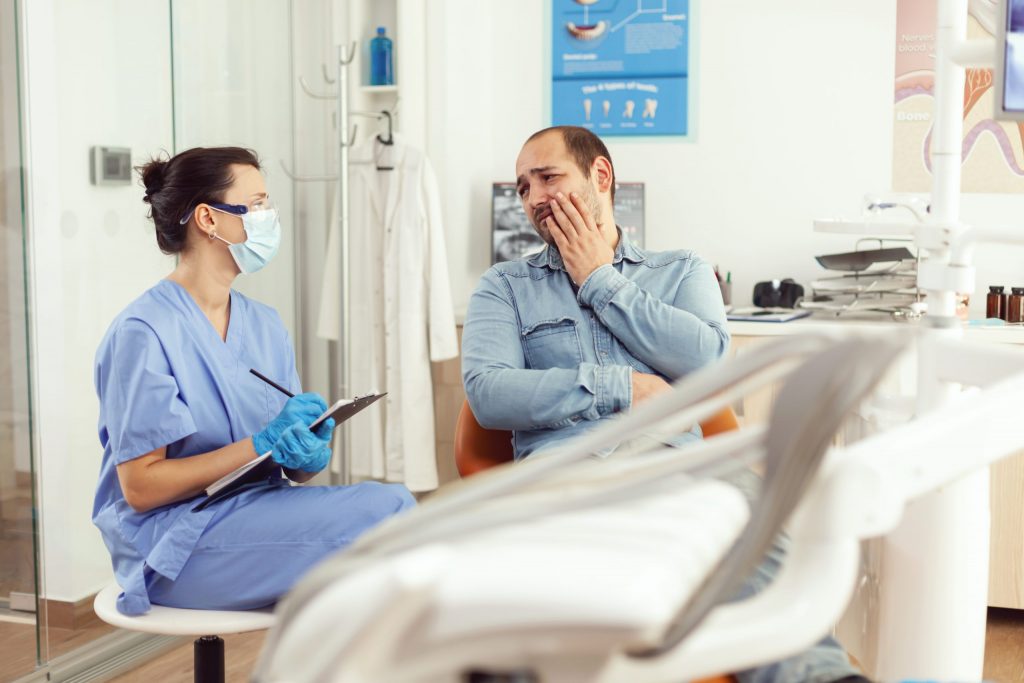When a dental emergency strikes, it often happens when you least expect it—whether it’s a sudden toothache at night, a broken filling, or an accident that knocks out a tooth. In these stressful moments, knowing what to do can save your smile, reduce pain, and even prevent long-term damage.
At Merrion Square Dental, we understand emergencies don’t wait for office hours, which is why we’re here to guide you through the steps you should take if you find yourself in urgent need of dental care.
Common Types of Dental Emergencies
Not all dental problems are emergencies, but some require immediate attention:
- Severe toothache that won’t go away with pain relief.
- Knocked-out or broken tooth due to an accident or injury.
- Lost fillings or crowns that expose the tooth.
- Infections or abscesses causing swelling, fever, or severe pain.
- Bleeding gums or mouth injuries that won’t stop bleeding.
If you experience any of these, acting quickly is essential.
What to Do in a Dental Emergency
1. Stay Calm and Assess the Situation
Panic won’t help. Take a deep breath and carefully check the problem—whether it’s pain, bleeding, or a broken tooth.
Pro Tip: Consider using an electric toothbrush, which can help remove plaque more effectively with less effort.
2. Manage Pain and Swelling
- Take over-the-counter pain relievers (such as paracetamol or ibuprofen).
- Apply a cold compress to the outside of your cheek to reduce swelling.
- Avoid placing aspirin directly on the tooth or gums—it can cause burns.
3. If You Knock Out a Tooth
- Pick it up by the crown (the part you chew with), not the root.
- Rinse gently with water if dirty, but don’t scrub.
- If possible, place the tooth back in its socket. If not, keep it in milk or a tooth preservation kit.
- Get to a dentist within one hour for the best chance of saving it.
4. For Broken or Chipped Teeth
- Save any fragments if you can.
Rinse your mouth with warm water.
Apply gauze if there’s bleeding.
Avoid biting down on the damaged tooth.
5. For Lost Fillings or Crowns
- Cover the exposed tooth with dental cement (available at pharmacies) or even sugarless chewing gum as a temporary measure.
- Do not attempt to glue the crown back yourself.
6. When You Suspect an Infection
- Signs include severe toothache, swelling, fever, or a bad taste in your mouth.
Rinse with warm salt water.
Call your dentist immediately—untreated infections can spread and become life-threatening.
Why Acting Fast Matters
Dental emergencies don’t just cause pain—they can impact your long-term oral health. Quick action can mean the difference between saving a tooth and losing it.
That’s why at Merrion Square Dental, we make it easy to get seen fast. With flexible scheduling, emergency appointments, and compassionate care, you’ll never have to wait days in pain.
Final Thoughts
A dental emergency can feel overwhelming, but you don’t have to face it alone. By knowing the right steps to take—stay calm, protect your tooth, manage pain, and call your dentist—you’ll give yourself the best chance of recovery.
If you or a loved one is dealing with a dental emergency, contact Merrion Square Dental immediately. Our expert team is here to provide fast, effective, and gentle care—so you can get back to smiling with confidence.
Visit us at 7daydentist to book your emergency appointment today.











